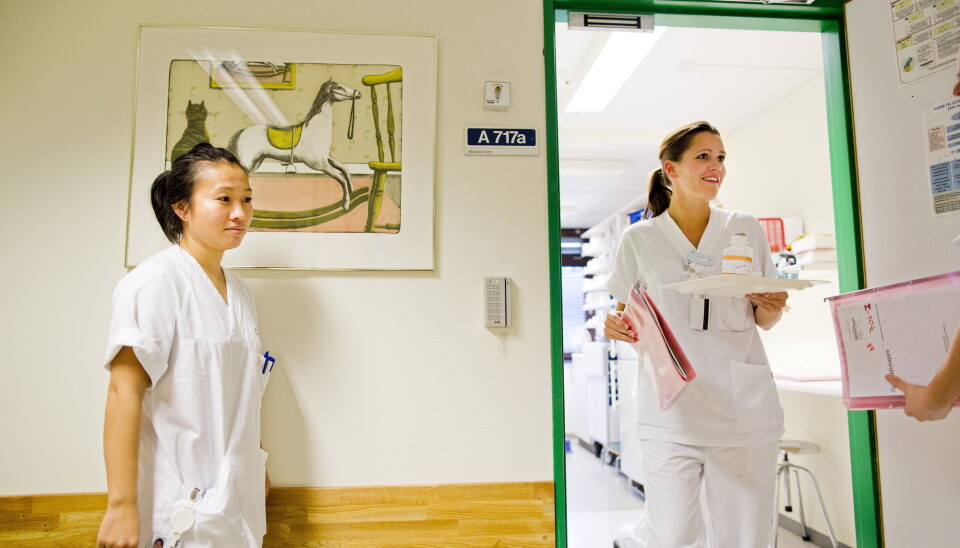
Nurses can smell infections
Many people have heard of the clinical eye. But the nose is also important when nurses assess a patient’s condition.
The nurses in the cancer ward where Hanna Marie Ihlebæk did her field work didn’t think to tell her that they used their sense of smell at work.
Ihlebæk recognized the smell of vitamins from her childhood vitamin supplements, and spontaneously asked if there were other things nurses could detect by smell.
Of course, they answered.
“For example, a urinary tract infection, or clostridium (an intestinal infection that causes diarrhoea). It's super easy to smell!” one nurse replied.
“A urinary tract infection is very distinct. I can recognize that smell out in the corridor,” another said.
And, “With experience, the smell is so obvious that I almost don't have to test for it. But of course we always test to confirm," said a third.
A natural part of the job
“For nurses, using their sense of smell was simply a natural part of how they made patient assessments,” Ihlebæk says.
“It wasn’t something they told me as a part of how they did their job, because it was so obvious. It was also a type of knowledge that was difficult to put into words.”
As part of her doctoral research, Ihlebæk spent five months at a cancer ward in a hospital that had roughly 5,000 employees. The nurses she observed were aged 25 to 50, and had anywhere from two to 25 years of experience.
Ihlebæk is employed at Østfold University College, and is doing her doctoral thesis at OsloMet. She studies how nurses use knowledge on the job, and became particularly interested in how senses like smell played a big role in their work.
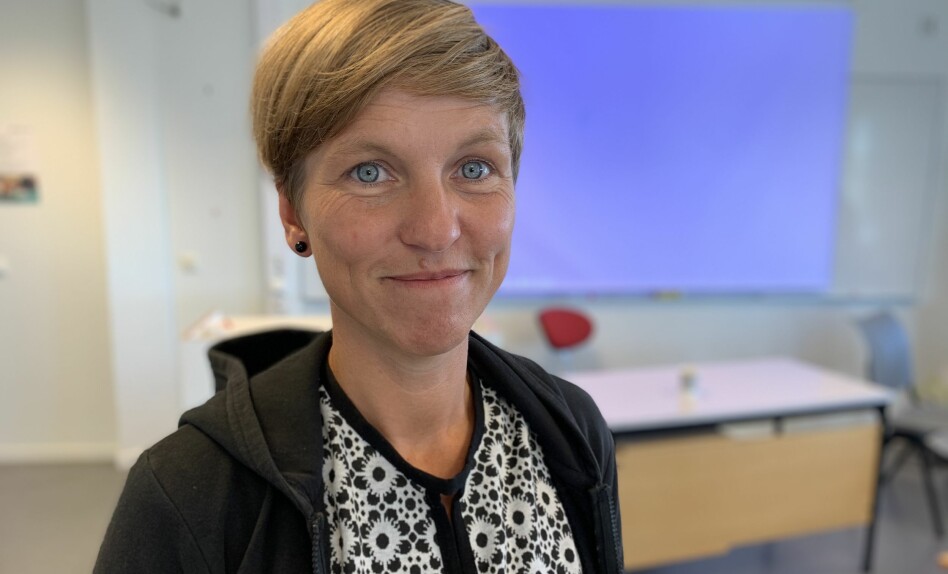
“They use all their senses, more or less consciously,” Ihlebæk says.
“Looking at patients is a very conscious action, hence the term ‘the clinical eye’. Watching and touching, feeling the patient — these are things the nurses were more aware of and were able to explain. Nurses explicitly learn to look for certain things. The sense of smell, on the other hand, is just ‘on’. They do not use it actively unless they smell something wrong. So there is a more unconscious use of that sense,” Ihlebæk says.
Senses as a source of knowledge
Using senses in nursing undeniably sounds vague. The clinical eye is then also surrounded by a certain mysticism.
“Some people call it intuition, or the sixth sense. It often seems a bit mystifying, as if it's a trait you just suddenly get,” says Ihlebæk.
In reality, the clinical eye is not mysterious at all.
“The clinical eye is a way to put together information from all the senses when assessing a patient. When nurses say ‘I feel like something is not quite right here’, it means they have combined what they intuitively have seen, smelled, know and felt in relation to the patient, linked to the theoretical knowledge they have about illness and the body,” says Ihlebæk.
“To be good at this, nurses have to have a conscious relationship with it, and they have to have time to discuss it with other colleagues and have time for their patients. It’s just like other types of knowledge that have to be acquired,” she says.
Intuition and knowledge
Edith Gjevjon, a nurse and editor of the Norwegian nursing journal Sykepleien Forsking, recognizes herself in Ihlebæk’s descriptions.
“Of course we use our sense of smell. Nurses use all their senses except taste,” says Gjevjon, who is also head of the department for undergraduate studies at Lovisenberg Diaconal University College in Oslo.
“I teach this, and it is difficult for students to understand. But there is something that you build up through experience, which you then naturally combine with other knowledge,” she says.
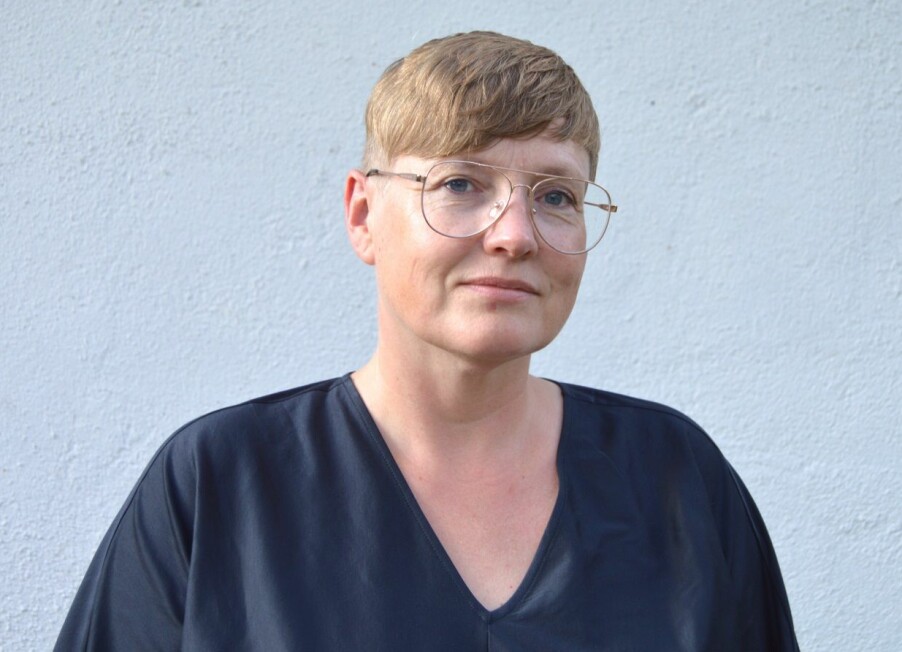
Gjevjon says that people who study and teach nursing are often concerned with what is called silent knowledge, or intuition. She thinks Ihlebæk's research is good at balancing a consideration for both standardization and experience-based knowledge, perhaps because the researcher spent so much time observing nurses' everyday working life.
“Some people are of the opinion that intuition is enough. Often this discussion can get a little polarized between people who are concerned with standardization, and people who are concerned with learning through practice and experience. We obviously have to have both,” says Gjevjon.
If you only talk about intuition, the skills related to nursing may seem a little fuzzy, she says.
“Nursing is so complex. Say you suspect a urinary tract infection because you smell it, but you can't confirm it until you do a test. You have to confirm what you are feeling. Nurses need to be better at articulating this. It's not just about having intuition, you also have to act on it,” Gjevjon says.
We can smell emotions, infections, and many other strange things
It has not been that common for people to study the sense of smell. But something happened after researchers Richard Axel and Linda B. Buck received the Nobel Prize in 2004 for explaining how the sense of smell works.
So how does it work? Can nurses really smell infections?
Preet Bano Singh is one of the few researchers in Norway who studies the sense of smell. She is not surprised that nurses can smell urinary tract infections.
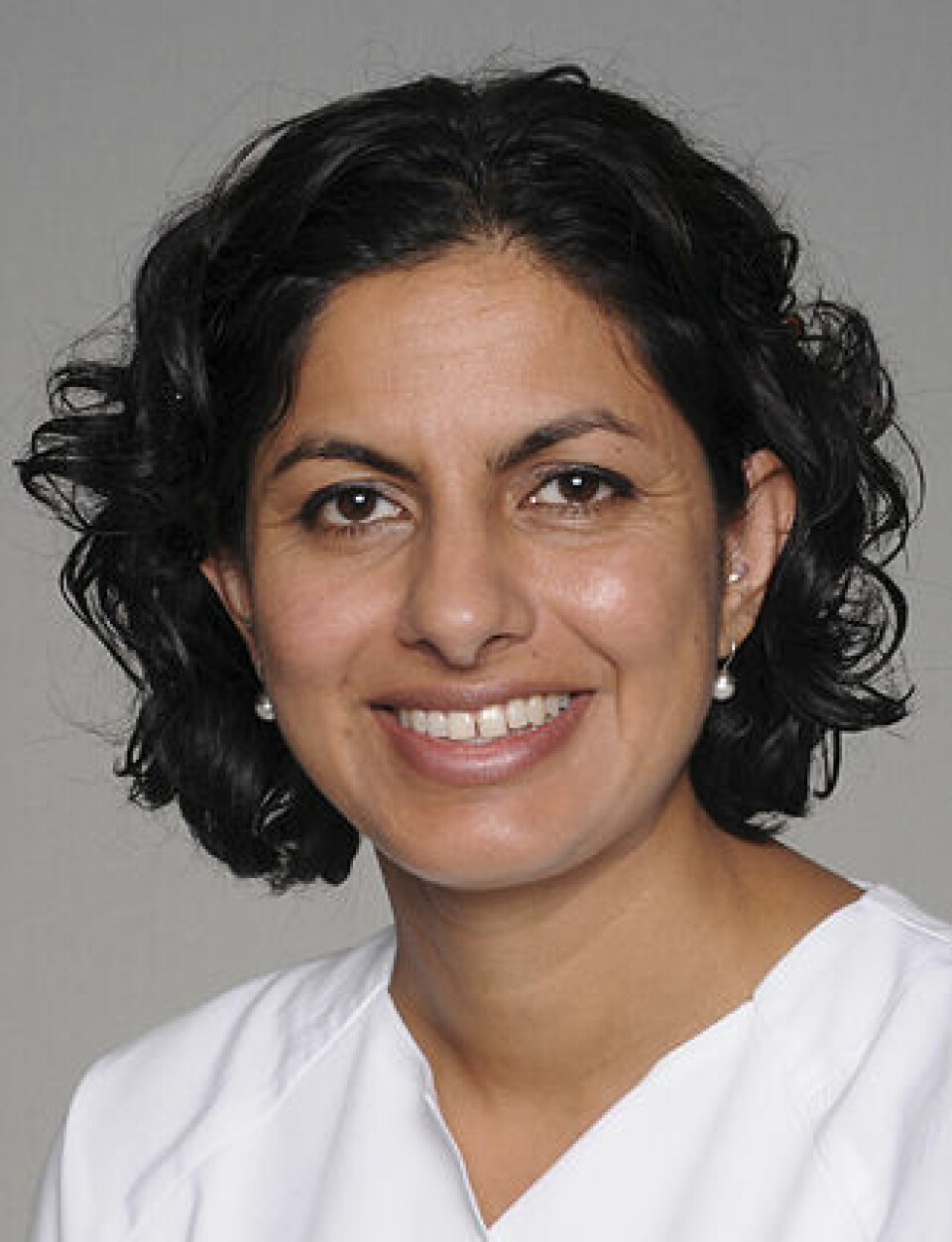
“We can smell a lot of weird things. We can smell other people's anxiety, joy, depression and other emotions. It is not surprising that nurses can smell infections,” she said.
In short, the sense of smell consists of nerves that perceive and transmit odours. Humans can distinguish between as many as 10,000 different smells. But where odour can be essential to survival in the animal world, the sense of smell has not been considered particularly important to humans.
Dentists can smell anxiety
Singh is a postdoctoral fellow at the Institute of Clinical Dentistry’s Preclinical Dental Simulation Center at the University of Oslo.
In an experiment conducted using dental students, Singh showed that dentists could smell anxiety in their patients, and gave them worse treatment.
You can more about the experiment in this article (in Norwegian) from the University of Oslo.
“This was a very innovative experiment, the first of its kind, and we got a lot of international attention,” Singh says.
She thinks the finding should make dentists more aware of the need to spend time getting people to relax before treatment. Dentists in Norway however, seemingly rejected this idea.
“They completely ignored the findings and didn't think it was anything they should care about,” she says.
It’s not that easy to tell people that you study smells, and that odour is important.
"The field is so new that many people think I'm a lonely clown doing it," says Singh.
“But the patients I work with appreciate it. They often cry, because this is the first time anyone has listened to them and says we can try to fix this.”
For example, the sense of smell can be trained.
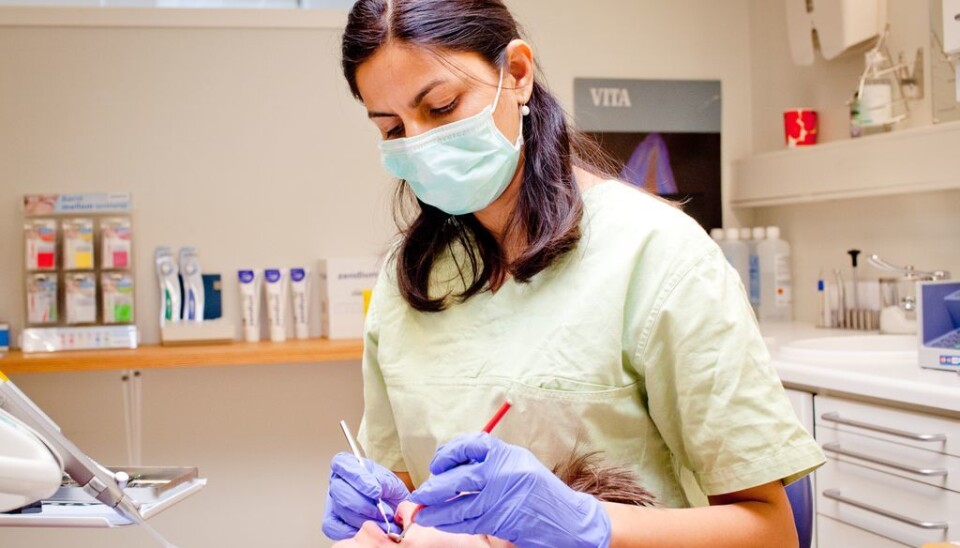
Depressed by life without smell and taste
Singh says that smell and taste as senses have been neglected for many years.
“In modern neuroscience it has been thought that these senses are not so important for us. Hearing and vision are more important", Singh says.
The research in these areas has also come a long way in developing advanced aids and operations for poor eyesight, and hearing aids for those who are hearing impaired.
"There’s nothing for smell and taste, however", she says.
But many diseases as well as medicines can weaken our senses of taste and smell. Singh is currently working on testing the sense of taste and smell in patients with cancer, Parkinson's, Alzheimer's and Sjögren's syndrome, and in people who have undergone radiation treatment in the head and neck area.
“They find that life is very difficult without a sense of smell, and many are quite depressed, but they don’t get adequate help,” she says.
Smell and taste are closely related, Singh says. Some patients think they have lost their sense of taste, but the problem is actually that there is something wrong with their sense of smell.
“If a strawberry doesn’t taste like it used to, it's not necessarily that there is something wrong with your sense of taste. It may be that you can no longer smell the strawberry,” she says.
Kids can suck on lemons, adults love coffee
Singh says that the acuity of our sense of smell is partly controlled by our genes, and what kind of exposure we may have had. But the sense of smell is also physiological, and it changes and decreases with age.
For example, children like different smells and tastes than adults. They can suck on lemons and crunch raw onions, but they don't like coffee and beer. Much of our sense of smell is also acquired through life and experience. And with age, it will weaken for physiological reasons, and will often be affected by medicine and disease. Research has even linked a poor sense of smell to early death in older people.
“An older nurse will probably have a worse sense of smell than a young nurse,” Singh says.
At the same time, however, the older nurse will have more experience and may be able to smell things that a younger, less experienced nurse can’t smell, she adds.
“If you smell a particular odour many times, it will be stored in your memory and you will recognize it more easily next time."
Doctors also use their nose
Mette Bratt, chief medical officer and clinic director at St. Olavs Hospital in Trondheim, confirms that it is quite possible to smell infections.
“Doctors and other health professionals certainly can smell infections, especially personnel who work on infection wards. If you have smelled an anaerobic infection before, then it’s not difficult to recognize,” she said.
Anaerobes grow without oxygen and thrive in the intestinal tract — they can typically cause illnesses such as gangrene, food poisoning, tetanus and certain types of diarrhoea.
Bratt leads a large research project that examines the extent to which it is possible to build up the sense of smell in people with a normal sense of smell. Like Singh, she feels that the sense of smell has been under-prioritized in research and in the health care system.
“I get patients referred to me from all over the country. I often can't do anything for them, but at least they get to know that they have a disability. Losing the sense of smell is something that has a huge impact on people's lives,” she says.
The smell of life and death
Hanna Marie Ihlebæk hopes her finding of nurses who smell will contribute to an awareness of the type of knowledge that the senses represent in nursing. Many of the nurses she observed and interviewed felt that they had too little time with their patients. This, in turn, can make it difficult to develop sensory skills that can be crucial in a hospital context.
“This is not a type of knowledge that can be formulated into standards and routines,” says Ihlebæk. “That means it is in danger of becoming invisible, while the practitioners themselves say it is essential to doing their job.”
Detecting an infection and initiating treatment quickly enough can be crucial for very ill cancer patients.
“So this is not a feeling,” Ihlebæk says. “It is a type of technical knowledge that is very important to learn, which is ultimately about life and death. I am concerned that this type of knowledge is compared to other types of knowledge that may be seen as more important.”
Nurse and researcher Gjevjon is not as concerned about the state of health care with respect to this skill.
“We have to stop seeing this in such a polarized way, we need both knowledge through practice, and standardization,” she said. She’s not worried that the knowledge of how to use the sense of smell in nursing will be lost.
“Not so long as nurses have integrity, and practice their profession to the best of their ability,” she says.
Translated by Nancy Bazilchuk
Reference:
Ihlebæk, Hanna Marie, Blood, Sweat, and Tears: Making Sense of Senses in Expert Nursing, Ethos, Journal of the Society for Psychological Anthropology (2018)
———































